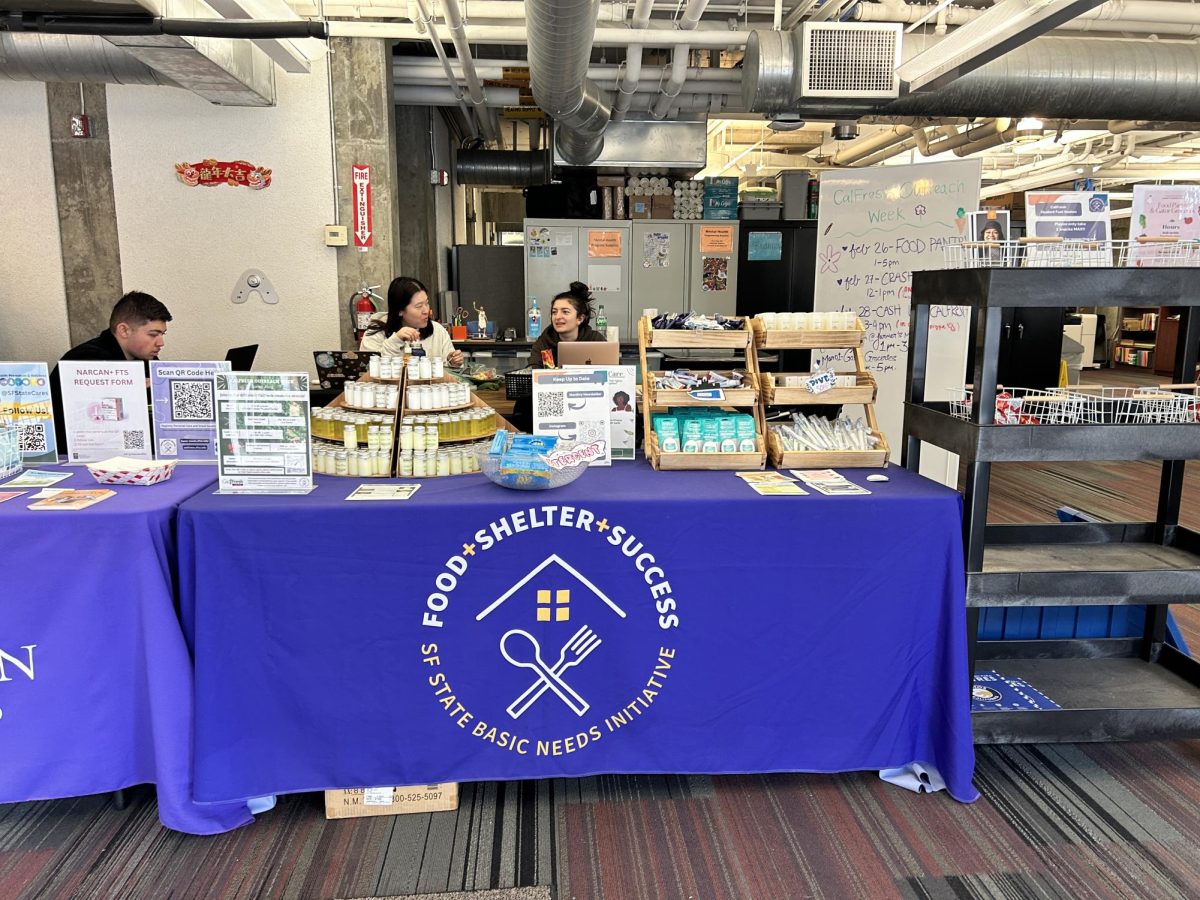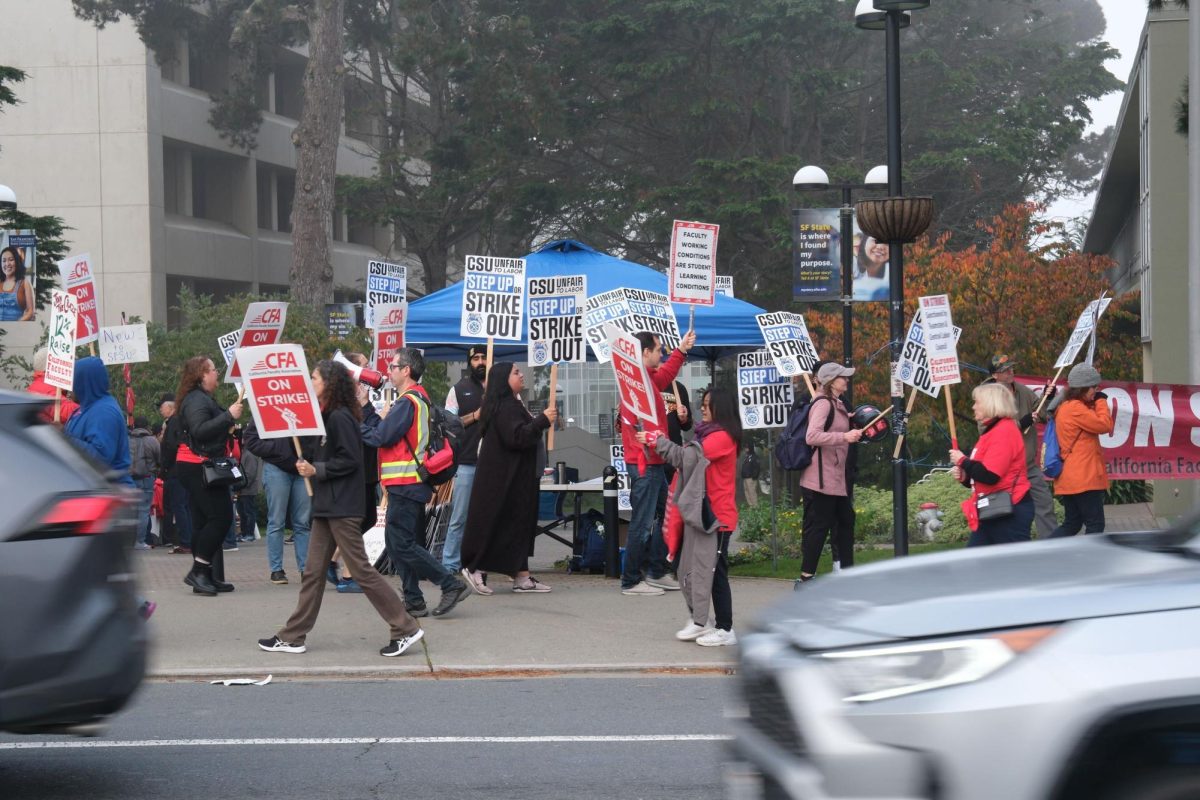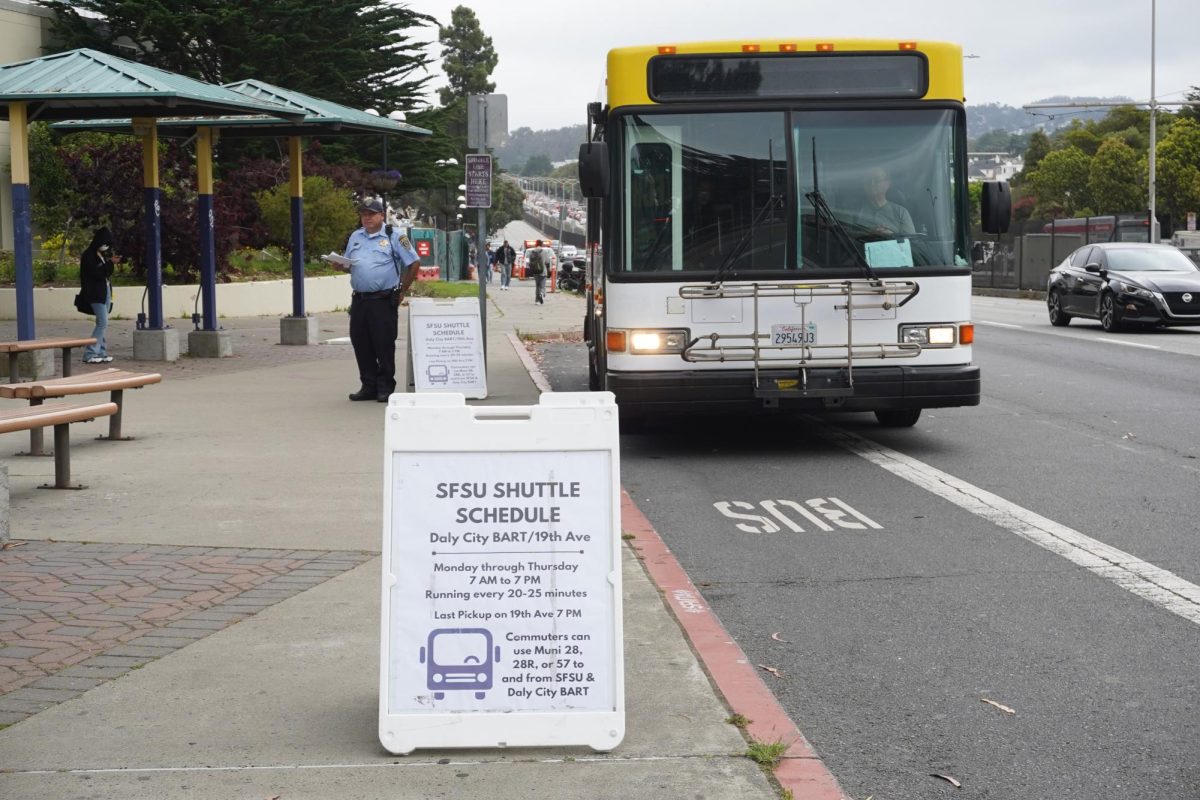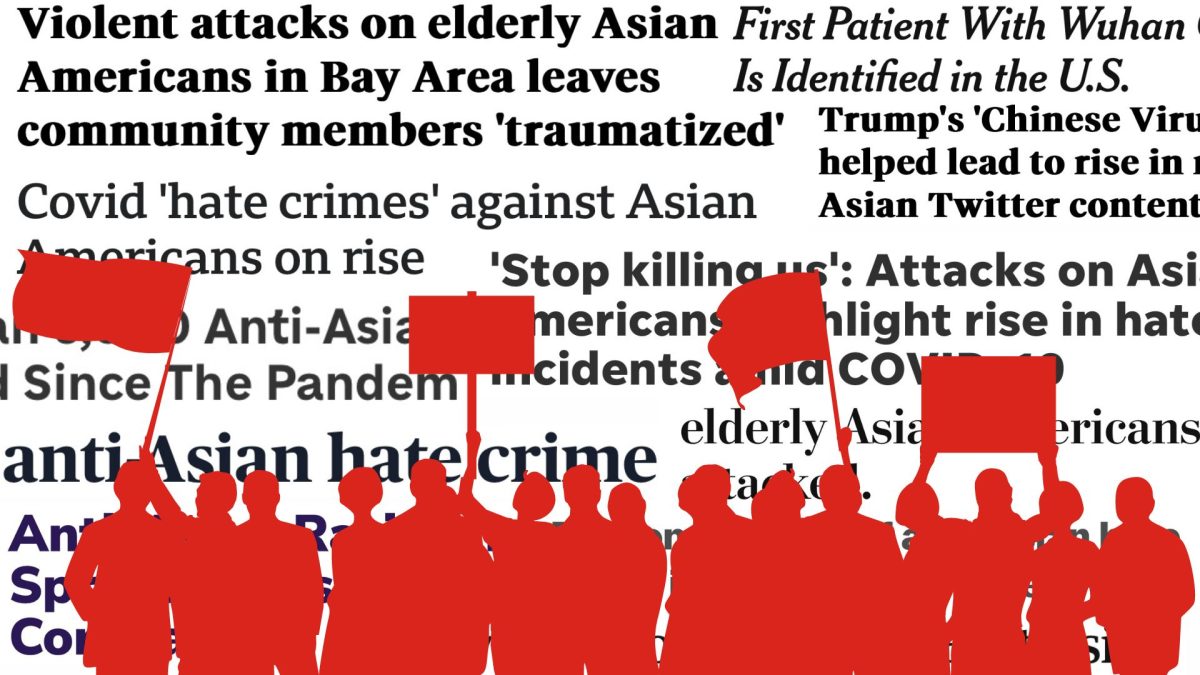The Food + Shelter + Success program at San Francisco State University changed its application process for emergency meal cards last fall to cater to students with food insecurity.
The program is one of three main resources focusing on on-campus emergency meals and groceries.
“We were using a lot of emergency meal cards but it wasn’t for this particular community,” said Christopher Lujan, director of FSS. “We wanted to make sure that was what we were highlighting and so we moved to this process where students now need to engage with us a little bit more.”
According to the Food + Shelter + Success website, students can no longer walk into their office and receive a meal card. Instead, they’ll need to fill out an application on their website — one that asks students for their first and last name as well as their student ID number. From there, students who apply must agree that it is an “emergency food source,” meals students with food insecurity can receive for free.
Lujan has only been working at FSS for a little over a year and wants to support the most vulnerable students on campus who don’t have money to pay for food. So far, the program has given out approximately 100 meal cards to students, which is equivalent to 1,500 meals.
Before the new application process, students would fill out a survey and immediately receive the emergency meal card.
Students who qualify for the service can use the meal card at the City Eats dining hall. According to the program’s website, this is a temporary solution and a one-time-use student resource. Students will receive 10 meal swipes on each emergency meal card.
The meal card service partners with Sodexo, the catering company that works with City Eats. Sodexo donates 2,000 meals to FSS every semester in order to provide support to students going through food insecurity. According to the FSS website, it is not meant to replace a meal plan, which students can purchase at the beginning of the semester to coincide with their housing payment.
Lujan hopes that the program will one day qualify for grants, which can be given to students. They can use them to purchase their own meal plans or use them towards groceries in the future.
The online application stresses the importance of the meal cards being an “emergency food resource.”
In addition to FSS, there are several other on-campus resources that provide free food to students.
Gator Grub Alert, a section on the SF State mobile app, used to be a resource for students who needed to find free food on campus. According to the program’s website, the resource has been suspended until further notice. When the service was in its prime, students could sign up for free food notifications through the SF State app.
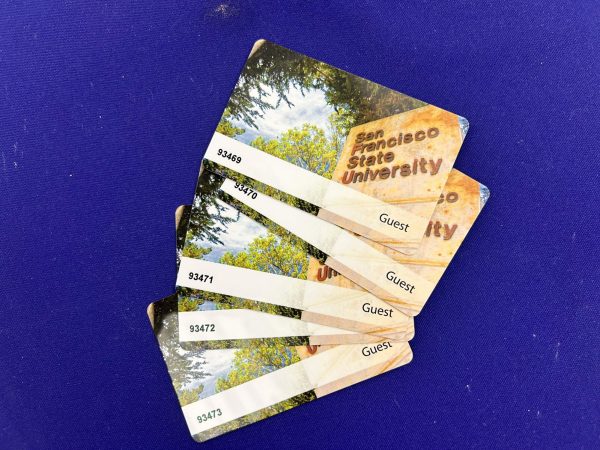
There are other options for students facing food insecurity on campus. On the recreation and dining level of Cesar Chavez Student Center, the Associated Students Food Pantry and Gator Groceries are open to students throughout the week.
Gator Groceries is open by reservation only on Thursdays and Fridays from 11 a.m. to 4 p.m. But the AS Food Pantry is open Mondays from 11 a.m. to 5 p.m. and Tuesdays and Wednesdays from 12 p.m. to 5 p.m. Students can walk in during those hours to pick up fresh produce.
Nayeong Lee is an international student from South Korea who heard about the food pantry and Gator Groceries from her friend, who sent her a link on Instagram. Lee now uses the food pantry once a week.
“I was astonished the first time that they gave us free stuff and groceries,” Lee said. “Because there is nothing like it in Korea. If they do it, it’ll cost a lot and there won’t be enough volunteers to make the program run.”
Using groceries given to her by Gator Groceries and the food pantry, Lee has been able to make dishes from her culture in Korea. She has made doenjang jjigae, a soup made with vegetables, seafood and meat.
“Most people have to choose between paying their rent versus getting groceries; I just think it’s really unfair,” said Alena Wong, the food pantry coordinator. “At the food pantry, we try to make sure that no one feels judged or just shamed. We encourage everyone who wants to come and get groceries to get groceries.”
Wong is also a student at SF State studying nutrition and dietetics.
The Food Pantry and FSS collaborate to help students apply for CalFresh and create recipes from their fresh produce. Inside the Health Promotion and Wellness Center, pamphlets with step-by-step instructions on how to apply for CalFresh can be found.
“We need to have a conversation with them [students] about longer-term solutions,” Lujan said. “That could be CalFresh, utilizing the pantry and pantries in their area, doing grants for them for longer-term support.”
These resources are available as an emergency supplement for students who cannot afford food.
Tatianna Ramos, the senior director of productions at Associated Students, has been at SFSU since the establishment of the food pantry.
During the pandemic, the pantry provided students with meal boxes containing canned goods and fresh produce. Now, the food pantry serves around 600 to 800 students a week, according to Ramos. The meal boxes are still available at the food pantry.
Horace Montgomery, the assistant executive director of programs for AS, created the Food Pantry program, which took place once a week in 2017. Ramos said the program was at one point feeding over 800 students. Gator Groceries was created after seeing a need for students and claiming their own space in Cesar Chavez’s dining level.
“My boss, Horace Montgomery, very much saw a need on this campus from students wanting food or snacks to just go through the day – make ends meet,” Ramos said about the creation of the program. “There’s a lot of stigma that comes with it [food insecurity], so a lot of students were afraid to even say ‘Hey, I need help.’”




